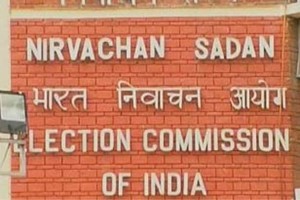 New Delhi, Oct 4: Assembly elections in five states were announced by the Election Commission of India on Friday. Elections for Delhi, Rajasthan, Madhya Pradesh, Chhattisgarh, and Mizoram assemblies will be held in a phased manner.
New Delhi, Oct 4: Assembly elections in five states were announced by the Election Commission of India on Friday. Elections for Delhi, Rajasthan, Madhya Pradesh, Chhattisgarh, and Mizoram assemblies will be held in a phased manner.
While polls to elect the 70-member Delhi assembly will be held on December 4, polls for 200- member Rajasthan assembly will be held on December 1 while elections for 40-member Mizoram assembly are scheduled to be held on December 4.
Chhattisgarh has to elect a new 90-member state assembly for which polls will be held in two phases, November 11 and November 19, while Madhya Pradesh will vote on November 25 to elect 230-member state assembly.
Announcing the poll dates, chief election commissioner VS Sampath said all measures are in place to assure free and fair elections. Sampath added that the commission is taking adequate steps to provide 'NODA' (none of the above) option to voters following the Supreme Court directive.
Counting in all states will be held on December 8.
Monitoring squads will be working in full force, Sampath said.
The tenure of the current Madhya Pradesh assembly assembly ends on December 12, Mizoram on December 15 and Delhi assembly on December 17, while that of Rajasthan assembly ends on December 31 and Chhattisgarh on January 4 next year.
Nearly 50,000 troops may keep vigil over these assembly polls. These troops will concentrate themselves in the Naxal-hit areas of Chhattisgarh in the second phase to counter the increased threat perception from CPM in the wake of the Darbha Ghati massacre that killed several top Congress leaders of the state in May.
During the last assembly polls in 2008, elections in Rajasthan, Madhya Pradesh, Mizoram and Delhi were held in a single phase, while that of Chhatisgarh was held in two phases.





Comments
Add new comment